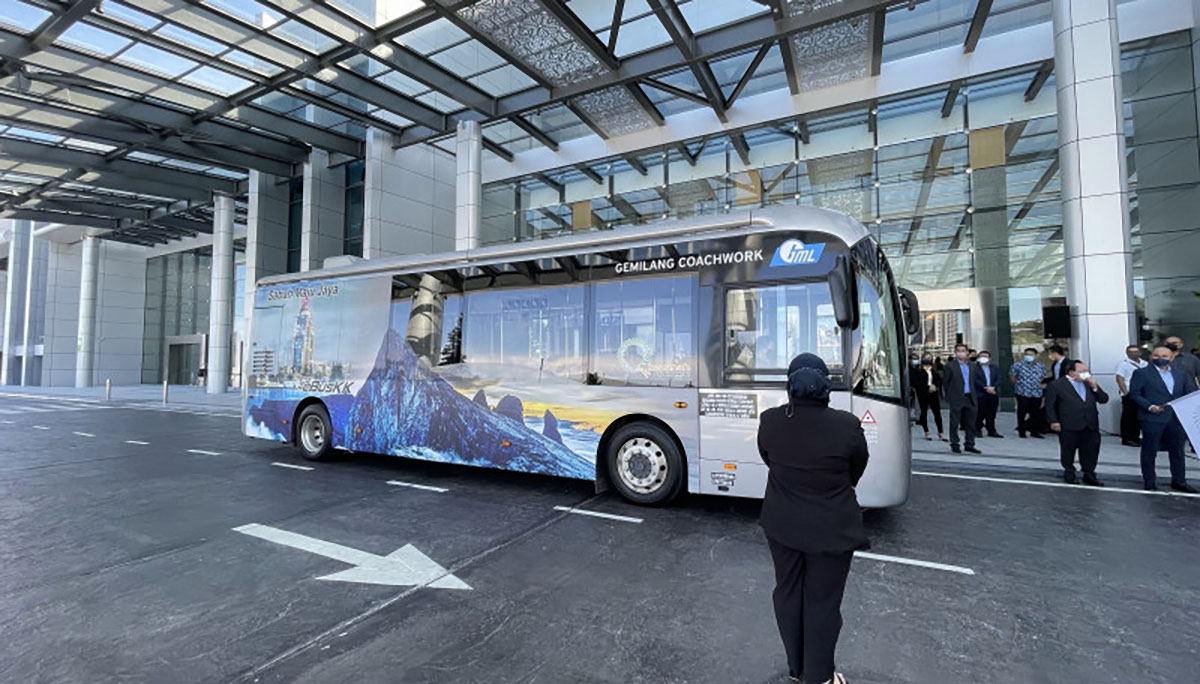For context, QSB is the state government’s strategic investment arm that is overseeing the implementation of the electric bus service. The project itself is a collaboration between the company and Gemilang Coachwork Sdn Bhd, which is one of Asia’s leading manufacturers of electric buses and aluminium bus bodies. Shukor says that the pilot programme, which spans over a period of six months, only involves one electric bus for now. The vehicle itself is capable of transporting a total of 54 passengers, and includes a ramp for allowing easy access for the elderly and individuals with disabilities. Additionally, it is also equipped with CCTV cameras for passenger safety, global positioning system (GPS) for navigation, and an onboard driver monitoring system. The bus will serve a 8.3km route covering the downtown areas between Sepanggar and Menara Kinabalu in Sabah’s capital city Kota Kinabalu. Shukor adds that the electric bus service, officially known as e-BusKK, is available to the public completely free of charge throughout the duration of the pilot programme. The introduction of e-BusKK is part of the Sabah state government’s initiative to reduce carbon emissions in Kota Kinabalu by 2050. Meanwhile, the pilot programme itself was implemented to assess the sustainability and feasibility of electric buses in an effort to support the existing public transportation system in the state. Shukor is hopeful that e-BusKK will expand its coverage to other districts in Sabah once the service begins its full operations by next year, once the pilot programme is concluded. In addition, Qhazanah is also aiming to increase its electric bus between five and 20 buses by then. In related news, several other cities in Malaysia have also recently begun trialling electric buses as part of their own public transport system. As we’ve covered prior to this, these include Kuching, Johor Bahru, Melaka, and Taiping. (Source: Bernama)
